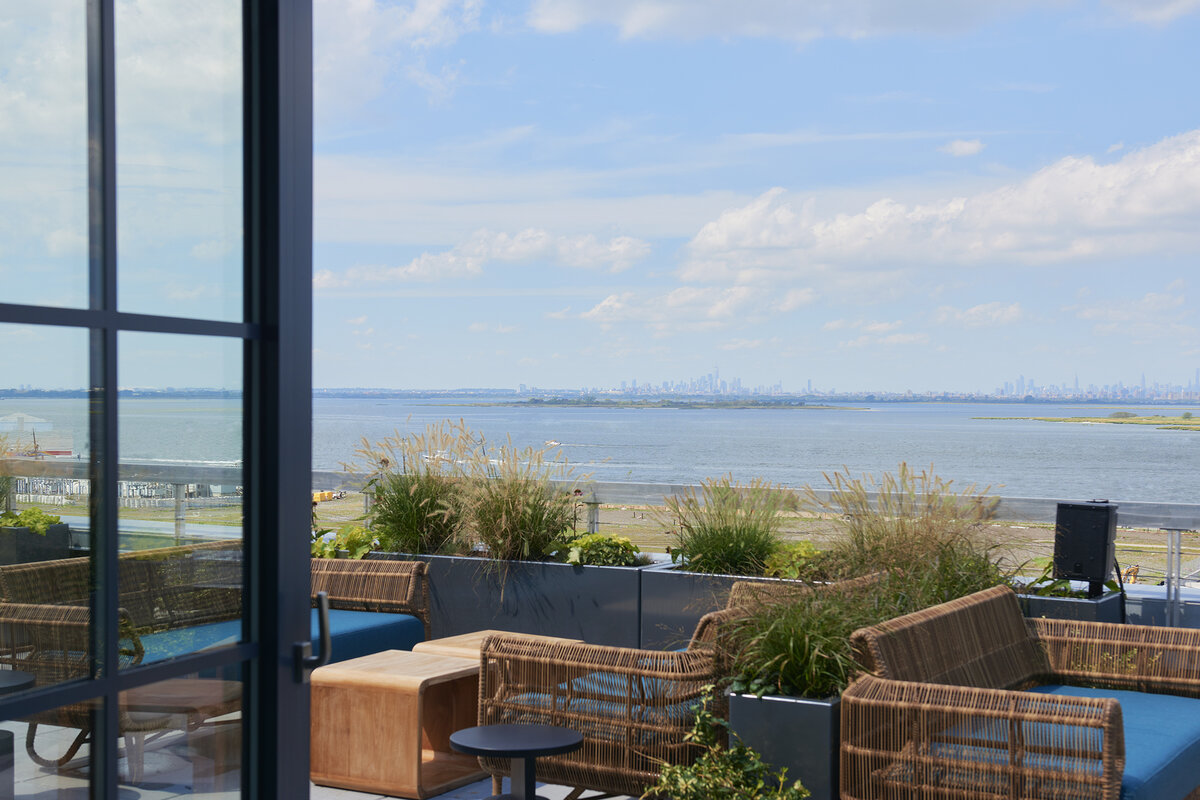Skift Take
Guests are following in the footsteps of those who’ve fled to the suburbs during the pandemic, taking advantage of features like more square footage, lower prices, and regional authenticity. The strategic move would be for more hoteliers to follow them there.
The Rockaway Hotel is surrounded by two naturally stunning landscapes: 12 miles of the beach on one side and a sprawling nature sanctuary on the other.
But that’s not the most remarkable thing about the property. When the hundreds of bird species that call Jamaica Bay home take flight, they do so against an Instagram-worthy backdrop of the New York City skyline. Winged creatures aren’t the only ones though who consider the area — a 15-minute drive from JFK Airport and a 45-minute ferry ride from Wall Street — an urban escape.
“I think there’s this move away from wanting to stay at that Times Square hotel,” said Rockaway partner and co-owner Terence Tubridy. “We have people who want to visit friends but want their own space after being cooped up for so long.”
“And then we have Europeans who have been to New York City before and are looking to stay somewhere different where they’re still close to everything.”
The Rockaway is not alone in finding success outside of a city center, particularly as travel continues to rebound from the pandemic. Besides some obvious benefits for hoteliers, like being able to provide complimentary parking, build a bigger property, and offering lower rates for guests, there are other advantages — besides a good view — to being on the outside looking in.
“When people think of New York City, it’s (midtown) Manhattan,” Tubridy said. “But what makes New York City is this cluster of neighborhoods.”
“Guests are craving hyper local, authentic experiences, and here you’re going to get a drink, you’re going to have a real conversation with a New York City firefighter, someone from the neighborhood.”
As the U.S. workforce is still slowly trickling back to offices, other neighborhood hotels are also enjoying success. Life House in Denver’s Lower Highlands neighborhood, a boutique 16-room property that opened during the pandemic, has already been named among the best 50 hotels worldwide by Condé Nast Traveler readers. The hotel didn’t earn the honor because of the quality of its Frette linens, said general manager Oren Cohen, but because of its hospitality and the local flavor it provides guests at its restaurant Wildflower.
The space is popular not only with hotel guests, but locals who are increasingly looking for a spot besides their bedroom to pull up a laptop and grab a beverage. Cohen, like Tubriday, has welcomed a lot of guests eager to visit their loved ones among the exodus of city apartment dwellers into the suburbs.
Meanwhile, a swath along the Willamette River in Portland, Oregon is the ideal canvas for Kimpton RiverPlace Hotel. A portion of the property — which sits adjacent to a large waterfront park — contains spacious, fully furnished cottages that general manager Laura Maldonado says allow guests to live like a local.
“You get the best of both worlds here,” Maldonado said, adding that the RiverPlace Hotel’s location just blocks from a streetcar stop make it appealing to prospective guests.
“You’re away from the hustle and bustle of the city and you’re surrounded by nature, but you can still walk into the city.”
Have a confidential tip for Skift? Get in touch
Tags: denver, future of lodging, hospitality, hotels, New York, nyc, outdoors, portland
Photo credit: A view from the Rockaway hotel Kyle Knodell
